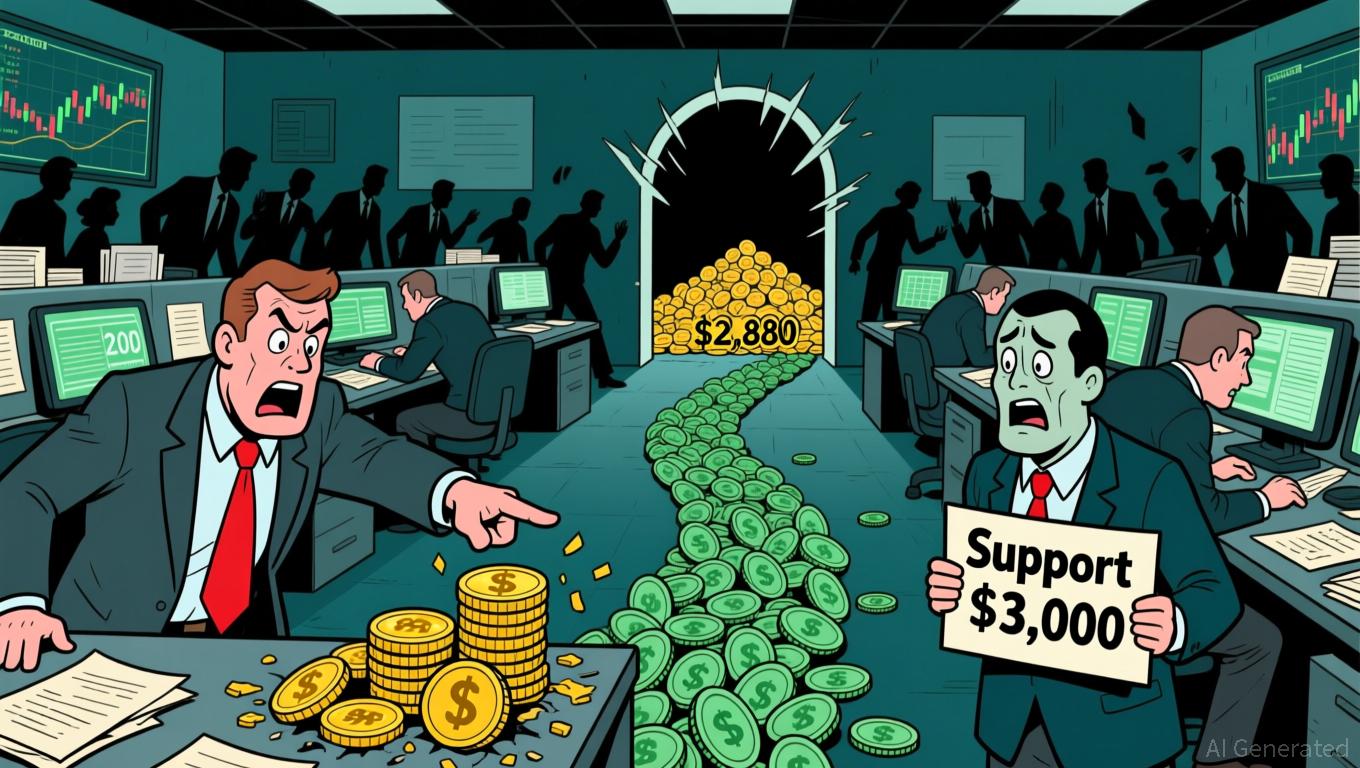The COAI Token Fraud: An Urgent Warning for Cryptocurrency Investors
- COAI token's 88% collapse in 2025 exposed DeFi vulnerabilities, driven by C3.ai leadership turmoil, $116.8M losses, and a class-action lawsuit. - Regulatory ambiguity (CLARITY Act) and technical flaws like Balancer's $116M exploit highlight systemic risks in decentralized finance. - Global DeFi exploits cost $2B+ in 2025, with Singapore reporting doubled fraud claims involving credential theft and impersonation. - Experts urge rigorous due diligence: audit smart contracts, analyze tokenomics, verify team
A Convergence of Leadership, Regulation, and Technology Challenges
The COAI crisis was intensified by the CLARITY Act, a law intended to define the regulatory framework for AI tokens but which instead added more confusion.

The Price of Inaction: Investor Losses and Systemic Threats
The consequences of COAI and similar fraudulent schemes have been immense. In Singapore, digital banks recorded
Due Diligence: The Investor’s Essential Safeguard
Specialists stress that thorough due diligence is now indispensable for anyone investing in crypto. Important steps include:
1. Tokenomics Evaluation: Examine how tokens are distributed, vesting timelines, and inflation controls. Projects with highly concentrated ownership or skewed incentives should be approached with caution
2. Smart Contract Reviews: Ensure that protocols have undergone audits by trusted organizations such as CertiK or OpenZeppelin.
3. Team Verification: Look into the backgrounds of team members through LinkedIn, previous projects, and their professional standing.
4. Community Assessment: Participate in Telegram and Discord discussions to distinguish genuine engagement from artificial hype. A robust community focuses on technology, not just price movements
Regulatory Preparedness: Closing the Gaps
The Financial Stability Board (FSB) has cautioned that global crypto oversight is still fragmented,
Diversification in the Wake of Scams
After 2025, diversification means more than just spreading investments—it involves choosing platforms that emphasize regulatory compliance. Steer clear of tokens based in regions with weak oversight, and prioritize those that follow KYC/AML protocols. As
Conclusion: The Importance of Vigilance
The COAI token debacle is a powerful reminder that in the crypto world, innovation is always accompanied by risk. Investors must make due diligence a constant priority, not a secondary concern. While regulatory systems will continue to develop, for now, individuals are responsible for safeguarding their own assets. As DeFi continues to evolve, those who proceed with prudence and insight will be best positioned to endure future challenges.
Disclaimer: The content of this article solely reflects the author's opinion and does not represent the platform in any capacity. This article is not intended to serve as a reference for making investment decisions.
You may also like
Modern Monetary Theory and the Transformation of Cryptocurrency Value Assessments
- Modern Monetary Theory (MMT) reshapes crypto valuations by prioritizing fiscal flexibility over rigid monetary rules, altering central bank policies and market dynamics. - Central banks like the Fed adopt MMT-driven strategies (e.g., 4.00%-4.25% 2025 rate cuts), creating paradoxes for Bitcoin as low-interest environments favor traditional assets over crypto. - Institutional adoption of crypto grows (55% of hedge funds hold digital assets by 2025), but MMT-driven liquidity shifts expose vulnerabilities in
Grayscale Increases Chainlink Holdings Amid Price Drop, Shows Confidence in DeFi’s Prospects
- Grayscale surged LINK holdings to 1.3M tokens, quadrupling over two years despite 50% price drop, signaling long-term DeFi infrastructure bet. - Price decline pushed LINK to critical support level with low Exchange Supply Ratio, suggesting potential stabilization and buying opportunities. - Research highlights Chainlink's role in securing dApps and enabling tokenized assets, with major banks like UBS already adopting its infrastructure. - Grayscale filed a spot LINK ETF (GLNK) for December 2025 launch, m

Ethereum News Update: Ethereum's Downturn Reflects Coordinated Withdrawal from Both Crypto and Traditional Markets
- Ethereum dropped below $3,000 on November 17, mirroring Bitcoin's 3.21% slump to a six-month low amid synchronized crypto-traditional market selloff. - Crypto investment products recorded $2B in outflows, with Ethereum ETFs losing $689M as macroeconomic uncertainty and whale selling intensified pressure. - Technical indicators show ETH breaking below $3,200 and key trend lines, with $3,000 support level at risk if $3,280 resistance fails. - Ark Invest's $39.6M crypto-linked stock purchases contrasted mar

Bitcoin News Update: Cryptocurrency Companies Turn to Preferred Shares for Bitcoin Purchases, Sidestepping Debt and Equity Dilution
- Metaplanet issues $150M in preferred stock to expand Bitcoin holdings, avoiding equity dilution and debt. - Strategy adds 8,178 BTC ($835.6M) via similar preferred shares, reflecting institutional preference for capital-efficient crypto financing. - JEXAI's AI-blockchain platform optimizes energy use and asset allocation, lowering barriers for institutional Bitcoin adoption. - Market turbulence, like a $5.5M liquidation on HyperLiquid, highlights risks driving demand for stable, long-term capital strateg
